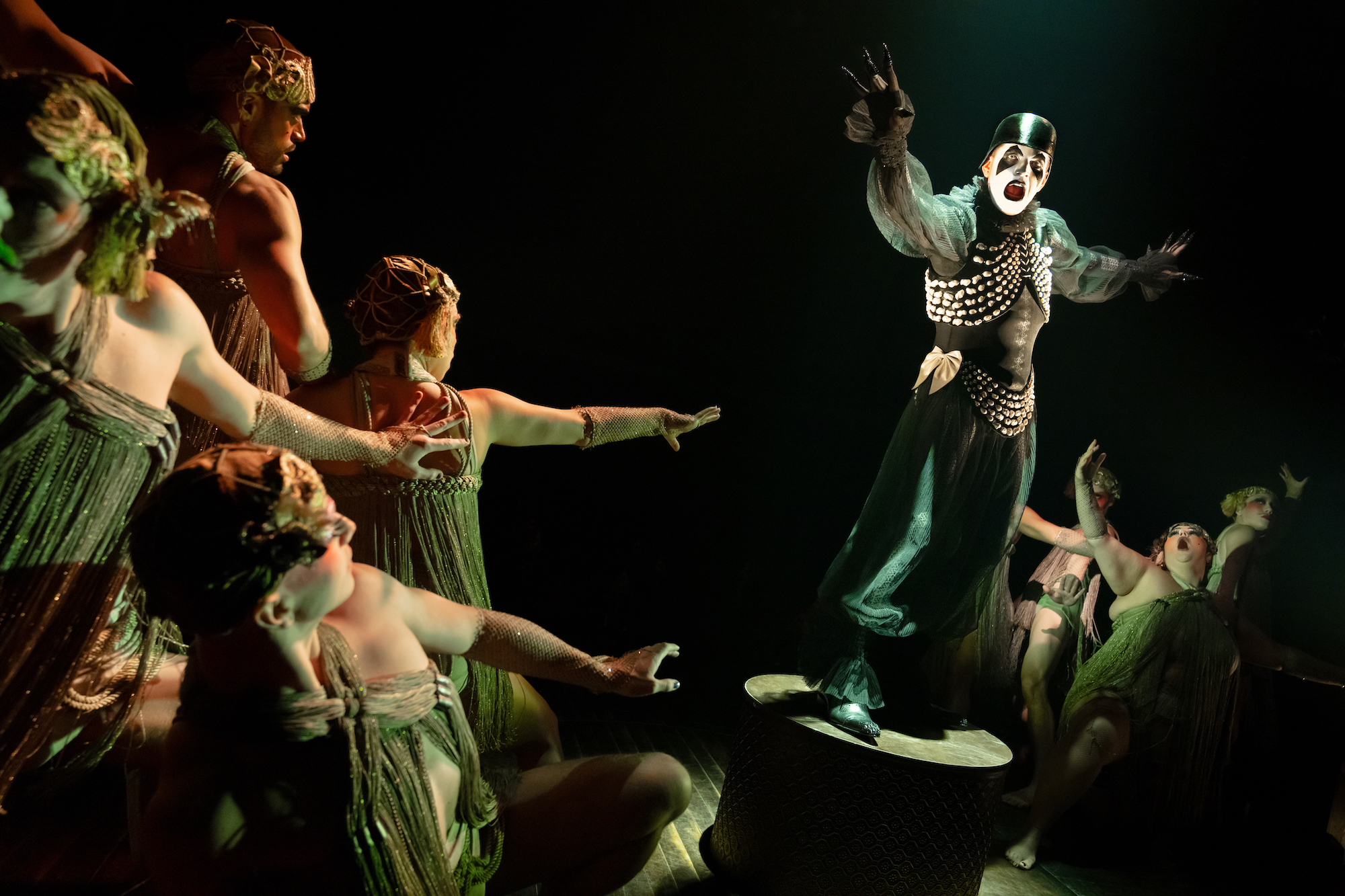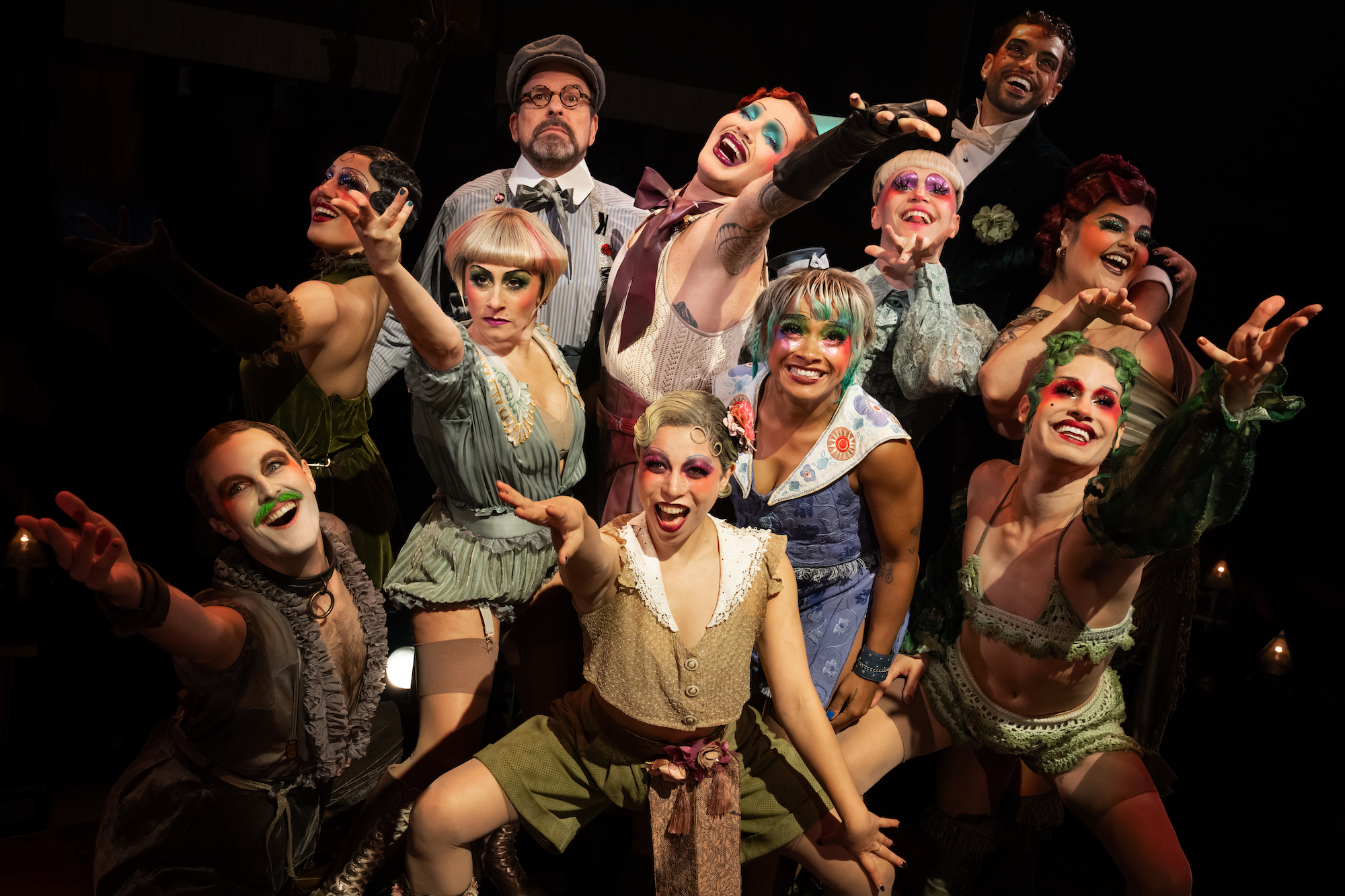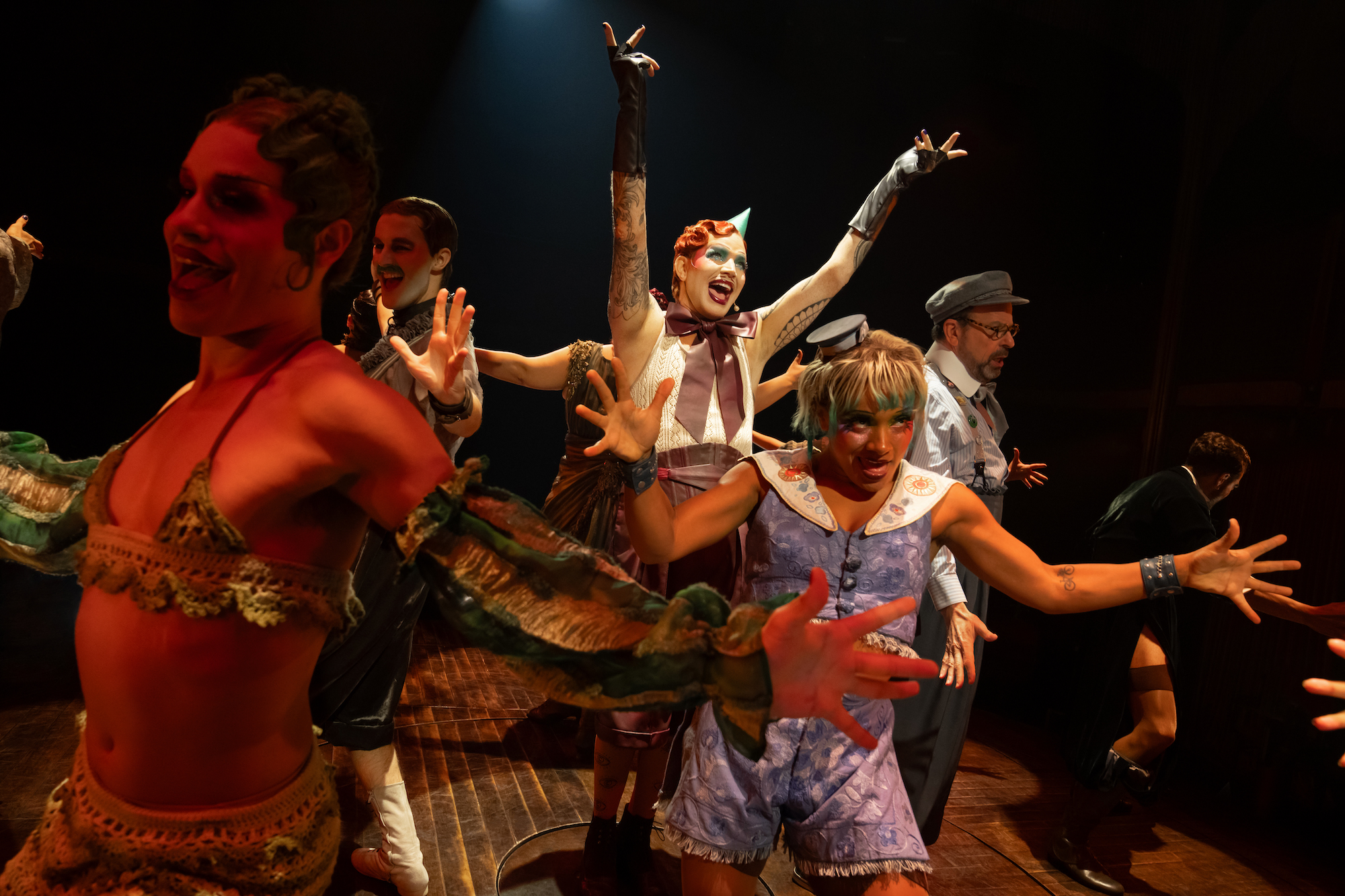New York City-The musical Cabaret, with a book by Joe Masteroff and music by John Kander and lyrics by Fred Ebb has been on Broadway five times including its debut in 1966, and six times in London. What is it about this show that has directors, creative teams, musicians, and actors coming back to tell the story over and over again? Based on the play I am a Camera which was based on the book Goodbye to Berlin, the show, directed in New York this time by Rebecca Frecknall, is based at the seedy Kit Kat Club in Berlin, where Sally Bowles, played at the performance I saw by understudy Gabi Campo, performs as a night club singer and becomes involved with an American writer, Clifford Bradshaw, played by Calvin Leon Smith. Clifford also has a secret gay lifestyle, Sally has secrets of her own, and there are a lot more plots and twists to be had.

Upon arriving at the August Wilson Theatre, you are ushered through the doors, and given the entire club feel. They put a sticker on your phone, and usher you into the preshow where dancers and musicians are entertaining you in fantastic ways. After absorbing this for a bit my husband and I made our way to the stage where I was dumbfounded. I lived in NYC in the 2000s and looked it up, and I had seen two shows in this space, which was a traditional proscenium stage. The transformation to a theatre in the round, with night club tables surrounding, orchestra on both sides, and dancers up and down the aisles continued the realistic feeling of forgetting our troubles and entering the Kit Kat Club. When the Emcee, played by Adam Lambert of American Idol fame, quite literally rises to the stage, the club feel is complete.
Within all the fun and ambiance lies a story that feels timely and complex at the same time. The secondary story of Fraulien Schneider, played at the performance I saw by understudy Michelle Aravena and Herr Schultz, played by Steven Skybell, as they fall in love and then face the fact that love in 1939 Berlin between a Jew and Non-Jew is just not possible, was deeply moving, troubling, and well played out. The seriousness of their story set against the backdrop of lavish enjoyment and gluttony has always been a hallmark of the Cabaret story, however this particular staging seemed even more tragically poetic, as if I should not be watching these private lives happening. Aravena is the understudy for a very famous Broadway and Hollywood actress, and many people get upset when they discover the person they had hoped to see was not going to be on stage. Her strong performance of the song “What Would You Do?” was an intense reminder of how understudies are professionals and often steal the show in a way that you may not have seen with the bigger star.

Campo as Bowles was electric. I am not sure how often she gets to go on as an understudy, and I know that there were mixed reviews for the person who had been on before Auli’i Cravalho took on the role, but I have nothing to compare this to. What I do know is that I was mesmerized by the level of angst, anger, and frustration she put into the role. Especially with her final number, Cabaret, with the lyrics feeling lighthearted and fun, but her staging, movements, and interactions being anything but. Campo managed to do this while maintaining vocals so precise that there is no doubt she is a trained professional who is able to maintain the rigorous performance schedule of Broadway.
Combining this with Lambert’s fascinating take on the Emcee led to a thought-provoking afternoon. One of my favorite parts of the Emcee performance was the costume design by Tom Scutt. Some of the highlights were the costume for the biting and all too true “Money Makes the World Go Around” which was quite difficult to explain but had a haunting effect, a full clown suit, and the surprising ending where the MC and eventually all the cast were in three piece suits, giving an eerie uniformity to the loss of the free and fun times in Berlin before the rise of Nazi power. The historian in me likes to dig in and understand that this story in particular was based on events that the author experienced as a writer experiencing nightlife in Berlin, and that understanding makes the production value, especially in a time when politics are so hotly debated in our own world, that much more interesting. This version of Cabaret is one I would not see transferring well to a tour. The way our big tour houses host productions is wonderful, but loses some of this intimacy and creativity that can be unique to a production like this.
Cabaret at the Kit Kat Club has an open run, playing Tuesdays through Saturdays at 7:30 or 8pm, with matinees at 2pm on Wednesdays and Saturdays, and 3pm matinees on Sundays at the August Wilson Theatre, 245 W 52nd Street NY, NY. There are also optional dining experiences for an additional cost. For additional information see https://kitkat.club/cabaret-broadway/
